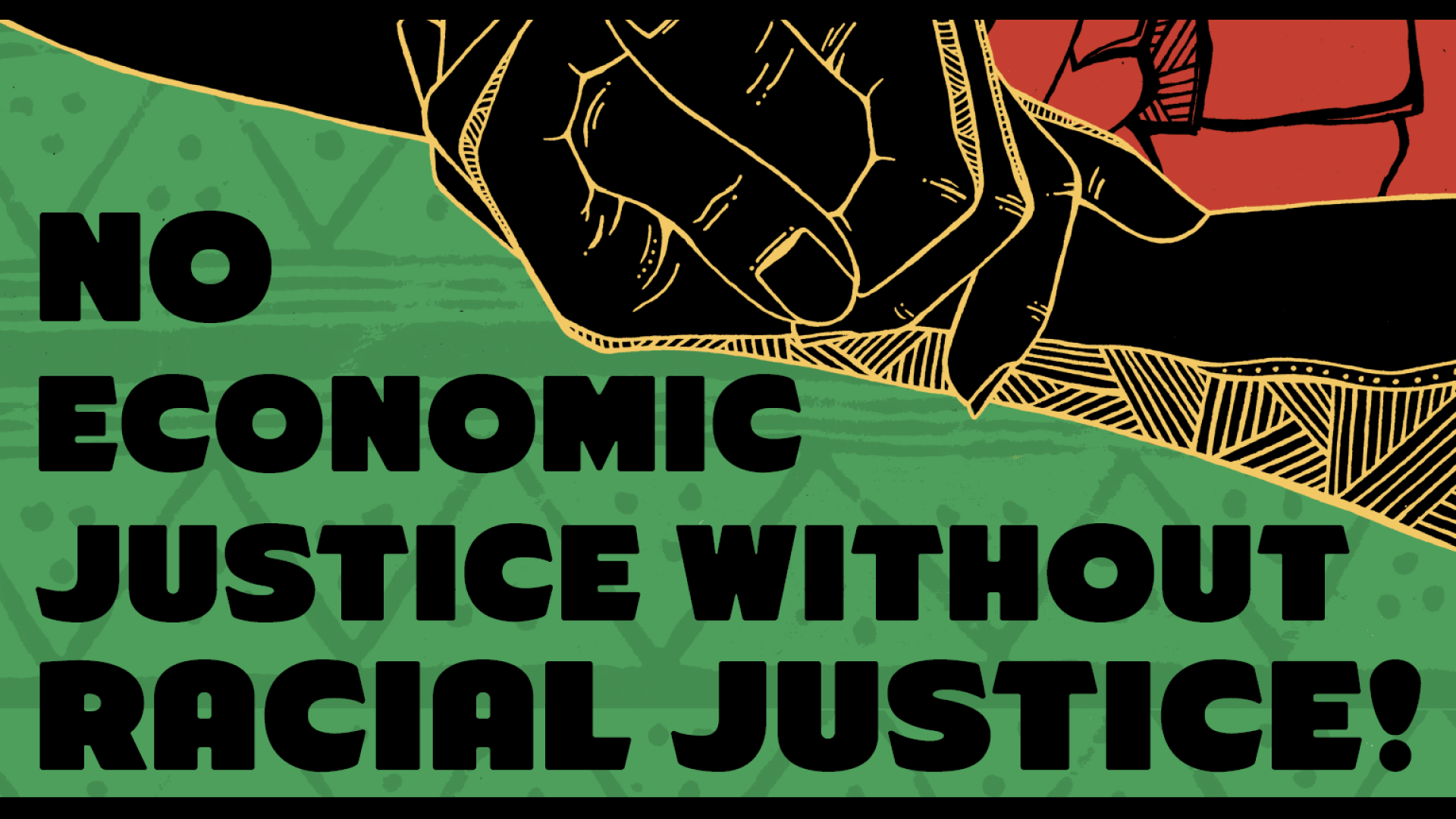March 21 is the International Day for the Elimination of Racial Discrimination. It marks the anniversary of the 1960 massacre of 69 peaceful Black demonstrators in Sharpeville, South Africa by the apartheid regime. Mindful of the recent Mosque Attack in New Zealand, CUPE Ontario calls on our members to reflect on the racial discrimination and xenophobia that persists in our workplaces, our communities, and our union—while committing to challenge it wherever it appears. In so doing, we also acknowledge the uniquely pernicious nature of anti-Black racism and the fact that ultimately there can be no racial justice without economic justice.
There are those who believe that the fight against racism in Ontario is well on the way to being won. But a 2018 report from the Ontario Human Rights Commission found that Black people are “grossly overrepresented” in incidents where police used force resulting in injury or death. Justice remains out of reach of hundreds of missing and murdered Indigenous women and girls and the long-awaited national inquiry into their disappearances has suffered from gross mismanagement. The rise of far-right politics represented by the likes of Donald Trump and Doug Ford has emboldened extremists to air racist, Islamophobic, and anti-Semetic views. According to Statistics Canada, hate crimes reached an all-time high in 2017, particularly anti-Black and Islamophobic hate crimes.
Racialized workers remain over-represented in precarious, temporary and low-wage employment. They are less likely to have benefits, workplace pensions, or paid sick days. Racialized workers make 26% less that non-racialized people and racialized women face an income gap of 47% compared to non-racialized men. The income gap between Indigenous and non-Indigenous people is 33%, while a 45% income gap persists between Indigenous women and non-Indigenous men. Racialized communities continue to face high levels of poverty: while the overall poverty rate in Canada is 11%, for racialized persons it is 22%.
These sobering facts underscore the need for an intersectional understanding of barriers to racial equality, concerted and self-reflective action by the labour movement, and ambitious measures to fulfil Canada’s promise as a multicultural society. Ultimately, racism cannot be separated from social and economic policies designed to benefit and uphold the privileges of the wealthy; those who propagate racial hatreds also seek to attack public services that level the playing field between rich and poor. The wealthy and the right-wing politicians they control want to divide us—scapegoating migrants, racialized people, and others so we fight amongst ourselves and can’t unite for the change our society needs.
For example, in Ontario, the Ford government is ruthlessly implementing an austerity agenda and refuses to tax the rich. These policies disproportionately impact racialized communities. Premier Ford has cut funding to the Anti-Racism Directorate and said he doesn’t support discrimination but feels that “certain carding is required.” During the 2018 provincial election, Ford turned his back on the first official provincial leadership debate organized by the Black community. In December 2018, Ford cut millions in funding for specialized programs, many of which help at-risk youth from racialized communities. His backtracking on key labour reforms under Bill 148, including the cancellation of the $15/hr minimum wage, has disproportionately impacted racialized workers.
Fresh off their success in Ontario, the far-right is setting its sights on the upcoming Federal election, with plans to divide the electorate along racial lines by stirring up anti-immigrant sentiment. Politicians like Maxime Bernier and Andrew Scheer need to understand that these divisions have no place in our political discourse.
There is another way. CUPE Ontario is fighting for strong employment equity standards to redress work-related inequalities faced by racialized people, such as increases to the minimum wage, equal pay for part-time, temporary, casual and seasonal workers doing the same job as full-time workers, and equal pay for temporary help agency workers doing the same job as permanent workers. We call for the immediate reinstatement of the Anti-Racism Directorate and a blanket ban on all forms of carding at every level of government. And CUPE members will challenge racist, anti-immigrant politicians in the upcoming Federal election and in our communities.
CUPE members will resist the racist policies of the current government, but we are also mindful of our own union’s shortcomings. Racialized CUPE members have often been discriminated against in our movement—whether facing hate, employment discrimination, a lack of leadership positions and CUPE staff positions, or disregard for their issues and concerns as racialized workers.
The CUPE Ontario Racial Justice Committee is committed to racial justice, inclusion and equality in the workplace and in our communities. Its mandate consists of fighting for fairness, including challenging racism and all forms of oppression, on behalf of racialized CUPE members. The Committee also builds relationships with community organizations and coalitions, including organizing a presence in cultural events like Caribbean Carnival.
Our 2018 Convention mandated the creation of an Anti-Racism Organizational Action Plan (AROAP) as well as a comprehensive campaign to counter rising hate and white supremacy in Ontario. These campaigns form twin prongs in our effort to tackle racism in our workplaces, communities, and union, and will be implemented over the course of 2019.
On the International Day for the Elimination of Racial Discrimination, we must remember that the fight against racism is not over and that there can be no racial justice without economic justice. CUPE members stand ready to challenge barriers to racial equality both around and within us.

